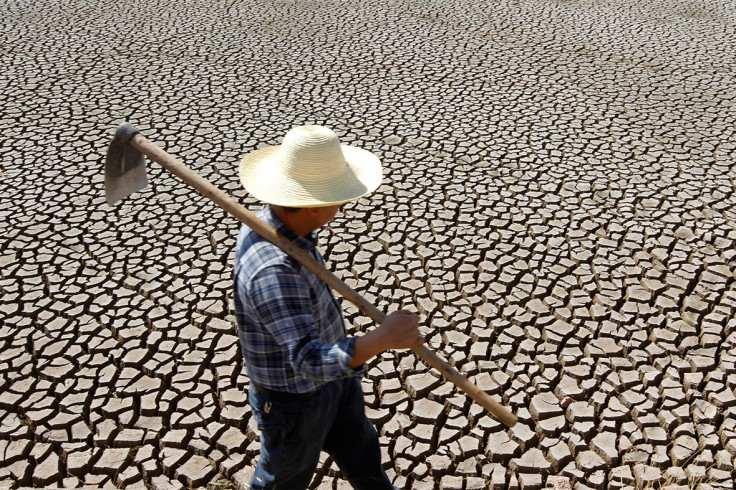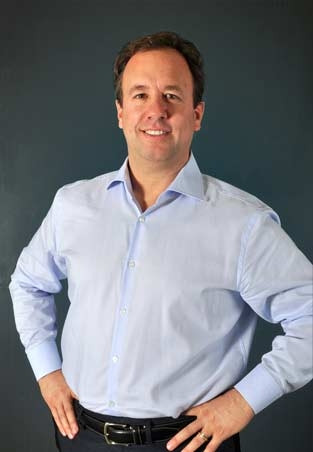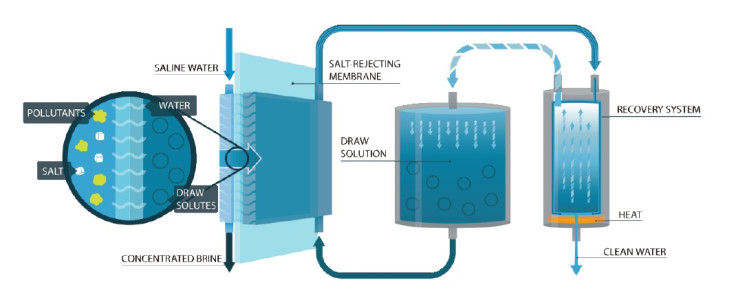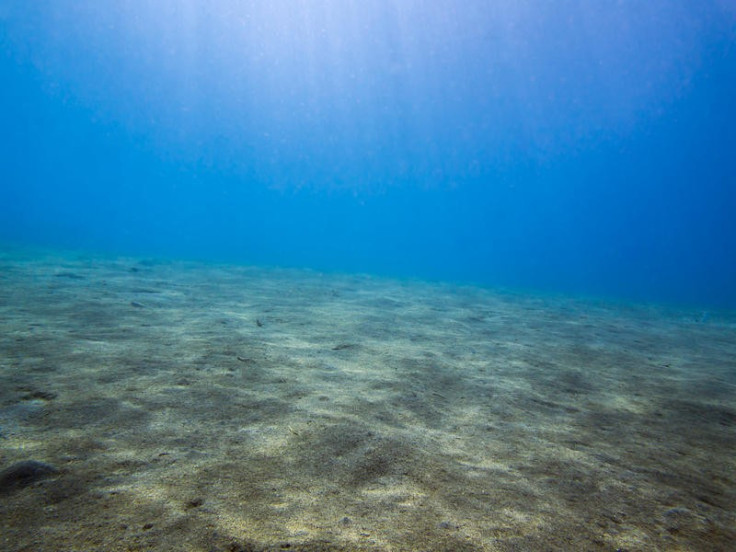Jim Matheson: The Top Gun Fighter Pilot Hoping to Revolutionise the Waste Water Industry

In the next 25 years, there will be worldwide water shortages. Experts predict that by 2040, there won't be enough water to fulfil the needs of both the world population and the energy industries.
"We'll have to decide where we spend our water in the future. Do we want to spend it on keeping the power plants going or as drinking water? We don't have enough water to do both," said expert Benjamin Sovacool.
But Jim Matheson, CEO of Oasys Water, has other ideas. The former Top Gun fighter pilot said he has found a way to convert waste water from the energy industry into clean, drinkable water.
Huge amounts of water are used to extract oil and gas. For every barrel of oil collected from the ground, between four and five barrels of water are also brought to the surface.
Indeed, when water used for fracking is brought back to the surface, it is classed as radioactive and has to be disposed of immediately.

"We have a freshwater availability issue and the consumption of fresh water for industrial purposes," he said. "We had been using it up then throwing it away. We've turned now to a reduce/recycle model but water is still in the early stage of that."
There are several ways to clean water that is not fresh, Matheson said. The most well-known method is to distil it: heat up the water, evaporate it to leave the salts behind, then condense it. But this is expensive and uses a great deal of energy, so on a large industrial scale it is not ideal.
As a comparison, seawater is about 3-4% salt, while water that comes out of industrial waste is between 10-15% salt.
One option could be a process called reverse osmosis. High pressures are used to push the water across a membrane, which filters out the unwanted salts and minerals. However, this method isn't practical for the energy industry.
But Matheson said another process, which has been dubbed "forward osmosis", is ideal.
"Instead of using high pressure to push the water off the membrane, we let nature do its thing, which is to naturally draw the water across the membrane," he said.
"I thought about nature. Osmosis in its core is how nutrients move outside of cells - the way trees move water from the roots to the tips and leaves. If you have two different fluids on either side of a membrane, nature wants equilibrium to address the imbalance."
He said if one side of the membrane has an extremely salty fluid, while the other has a far lower salt concentration, nature wants to move the fluid from the low side to the high side to even things out.
"Imagine a membrane in front of you as a vertical. On the right side is the water you want to treat while the left has a very high concentration environment. The water that we're treating is lower than the concentration on the other side, so the water is naturally drawn across that membrane leaving the undesirable solids behind.
"Then we just have to do a very simple separation of the water that you want from the solution to get a high volume of fresh water that can be reused over and over again."

Matheson said the technology for this process can be implemented at very little cost, and that the water recycled from industry waste is so clean it can be drunk – something he attests to himself.
"We can help not only avoid the need to dispose of the water but we can turn the water truly back into fresh water, which can either be reused again and again or can be discharged into rivers and ponds very safely. Literally it's cleaner than the water that comes out of the tap.
"It can be reused in places where there are droughts. We can turn this water into fresh water that can be reused for agricultural purposes, so it's really exciting."
So what's the catch? Matheson said there isn't one. He claimed Oasys Water has spent years turning a "too-good-to-be-true concept" into a working product, with 26 different patent families and potentially a multi-billion dollar global marketplace.

"To make anything simple is actually quite difficult," he said. "The only thing now is to overcome the scepticism on behalf of the potential customers.
"The water industry, despite being extraordinarily important and having big problems, is very closed, so we have to go in and prove ourselves. The more systems we deploy and the more data points we have and the more awards we receive, the more it provides us credibility."
Oasys Water is currently operating in China and the US. It is in talks with Australia and India, and is looking to become active in the UK, where the fracking industry appears to be getting a foothold.
Matheson said its aim is to become active on every continent. "We have the combination of dwindling freshwater resources, and the increasing population and industrialisation requirements for freshwater. We absolutely have to rethink how we use and reuse freshwater," he said.

Explaining how he ended up on a crusade to recycle waste water, Matheson said his overseas combat experience – including stints in Bosnia and the Middle East – made him see how conflict and resources are interlinked.
"For the first 15 years I did a lot of combat operations," he said. "People fight each other for lots of reasons but often they fight over resources. And if there's plenty of stuff to go around, people tend to fight a lot less.
"I realised that I would much prefer to help avert and avoid conflict by helping bring innovation and new technologies into the world. If we could do that successfully, hopefully there'll be a lot less fighting over these resources because there'll be plenty for everyone.
"Imagine a world where we have 40% shortfall in freshwater in 20 years - you can imagine the geopolitical ramifications of that. I'd much rather try to make sure the world has enough freshwater to do the things we need to do."
© Copyright IBTimes 2025. All rights reserved.






















